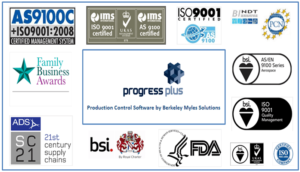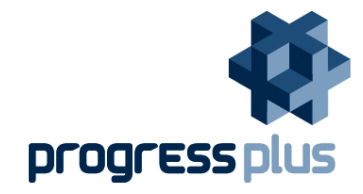Why Manufacturing Businesses Need To Adhere to Industry Standards

Manufacturing companies are faced with many requirements that need to be observed during the production process. Such obligations may include strictly following the standard operating procedures provided for every manufacturing process.
These companies may also require carrying out certain activities to improve their production process and to meet the market expectations. The procedures are critical in ensuring that products are of consistently high quality.
The standard operating procedures (SOPs) are supposed to be located conveniently in the operating room where they can be easily accessed. The methods help manufacturing companies comply with the regulations and set standards, avoid products failure and recalls.
Compliance with the norm operating procedures also enables products to penetrate into a new market easily.
Compliance with the standard operating procedures are associated with various advantages such as:
- Increased likeliness of winning public sector tenders: the public sector usually awards bids to companies whose products meet the required quality and industry standards. Complying with the set procedures during the manufacturing products high-quality products that match the market’s expectations.
- Well-written standard operating procedures may also help reduce the period taken in training new employees. The procedures can act as a lifeline guiding the new staff how things are usually done. The well-outlined procedures can be a great time saver and a confidence booster for new workers at the company.
- Standard operating procedures are critical in ensuring business continuity even when a key individual is absent. The company will not come to a standstill if there are well-written standard operating procedures to guide a person throughout the process.
- Adherence to these procedures also ensures customer satisfaction since the company is capable of sustaining the quality of its products according to the market expectations.
- Standard operating procedures reduce re-work that could result from a wrong manufacturing process.
- The procedures also increase the workers motivation and participation in the critical manufacturing process. The standard procedures could work as confidence boosters as mentioned earlier.
The management of this accreditation requires a good working relation among employees. It also needs efficient information sharing among all the workers in the company.
What Industry Standards Do You Need To Comply With?
Different standard operating procedures are available for various companies and various industries. It is a requirement for any business to find out the legal requirements they are expected to observe.
Customers are also a determinant factor when it comes to designing of a standard operating procedure. Business will be expected to conduct research to familiarise itself with the expectations of the market population, from there they can come up a standard operating procedure for the manufacturing process.
There are thousands of industry standards by different industry organisations but the most popular for manufacturing organisations is ISO 9001 quality management standard (AS9100 is the aerospace equivalent).
Compliance with the regulations that have been set by the relevant authorities is the primary goal of many organisations. Learning these regulations is the most crucial part as it allows a much greater efficiency and management systems, processes together with other personal challenges.
How Software Can Help With The Regulatory Compliance Process?
The utilisation of manufacturing software can significantly help in the compliance with the set regulations. Manufacturing software contributes to reducing the cost together with risks associated with compliance by ensuring a consistent and reliable way to provide evidence.
ProgressPlus is production control software that helps a company to acquire the most out of their business management process. The software has been designed to ease the management of risks, traceability and performance by reducing his expense spent in the process.
The tool is a comprehensive production planning and control system. The software has been designed to meet specific requirements of business companies involved in batch, short-run or a one-off production. The software brings together all the administrative and production processes, integrating them into one smooth running system.
Dacol Engineering has been using ProgressPlus since 2011 to help control their business operations. As a business that needs to adhere to legislation, in a recent ISO 9001 audit the BSI Assessor was very impressed with ProgressPlus. In particular, the BSI assessor was impressed with the amount of information he was able to access on ProgressPlus to complete the audit.
The software’s primary purpose is to minimise the time spent in the production process, together with the costs incurred.
ProgessPlus also works to ensure that resources are efficiently used, and the efficiency is well maximised at the workplace. Through the software, one can find anything that is related to the production planning by selecting an area provided. An effective and well-written production planning operation ensures full exploitation of any manufacturing process.
If you want to see how ProgressPlus can help with production planning and the compliance process get a demo.

